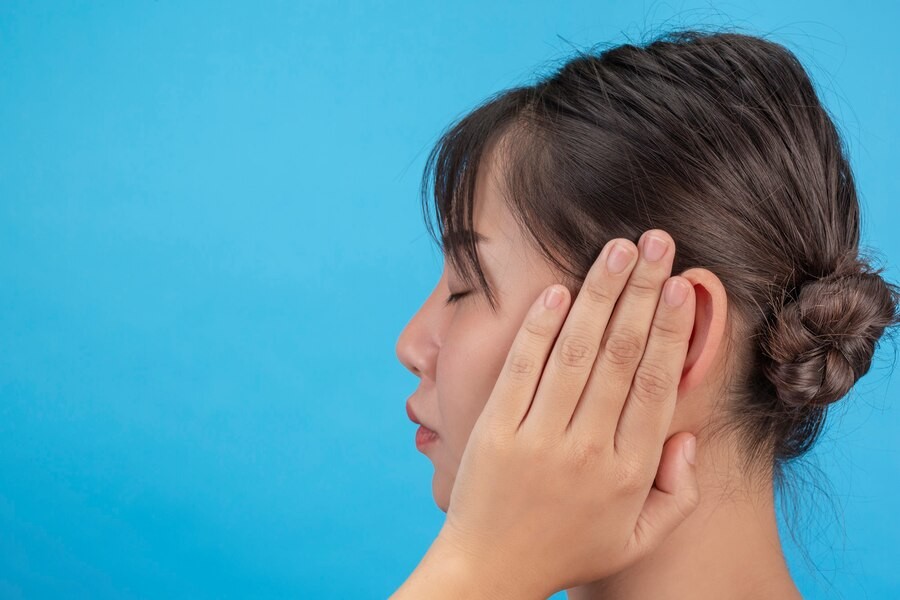Hearing is one of the most essential senses for communication, understanding the environment, and living life. Without it, interacting and performing daily tasks can become difficult.
Many people feel panic or anxiety when they experience sudden hearing loss, especially since it often occurs unexpectedly. Not knowing the cause can increase stress and fear. Therefore, it is important to understand what can cause sudden hearing loss.
What is Sudden Deafness?
Sudden deafness, or sudden sensorineural hearing loss (SSHL), is a condition where a person loses a significant amount of hearing within a short time, usually within 72 hours.
This condition typically affects one ear and is often accompanied by other symptoms like ringing in the ears, vertigo, or a sensation of fullness in the ear.
SSHL is considered a medical emergency that requires immediate attention. If not treated properly, it can result in permanent hearing loss.
Causes of Sudden Deafness
Many factors can cause SSHL, although in many cases, the exact cause remains unclear. However, an immediate examination is crucial to prevent long-term hearing damage.
Here are some potential causes of sudden deafness:
Viral Infections
Viral infections, including herpes, flu, measles, and COVID-19, can affect the auditory nerve in the inner ear. This damage to the pathway that transmits sound from the ear to the brain can result in sudden hearing loss.
Poor Circulation
The cochlea, a key organ in the inner ear responsible for hearing, relies on proper blood circulation to transmit sound signals to the brain. Any disruption in blood flow to the cochlea can impair its function, leading to sudden hearing loss.
Poor circulation to the cochlea are often linked to health conditions like high blood pressure, diabetes, high cholesterol, thrombosis, or hypotension.
Stroke
Stroke can also cause sudden hearing loss. In ischemic stroke, blood flow to a specific area of the brain or inner ear is blocked, leading to sudden deafness.
In the case of hemorrhagic stroke, bleeding in the brain due to a ruptured blood vessel can press on or damage the brain region responsible for hearing, causing sudden hearing loss.
Ear Membrane Rupture
A rupture in the ear membrane can result in sudden hearing loss. This tear can separate the inner ear from the middle ear, leading to fluid leakage and disrupting pressure in the ear.
Common causes of ear membrane rupture include head injury, hard coughing or sneezing, excessive straining, exposure to loud noises, or congenital defects in the inner ear membrane.
Sudden hearing loss should be closely monitored, especially in adults over 40, individuals with a history of chronic illnesses, workers exposed to loud noises, or those with an unhealthy lifestyle, such as smoking, lack of exercise, and excessive alcohol consumption.
If you experience sudden hearing loss in one or both ears, seek medical attention immediately. A doctor can perform an evaluation and recommend appropriate treatment.
You can also use the health consultation feature on the Ai Care app, available for download on the App Store or Play Store.
Looking for more information about other diseases? Click here!
- dr Hanifa Rahma
Mount sinai. Sudden Hearing Loss. Available from: https://www.mountsinai.org/locations/ear-institute/conditions/sudden-hearing-loss
Mayo Clinic (2022). Ruptured eardrum (perforated eardrum). Available from: https://www.mayoclinic.org/diseases-conditions/ruptured-eardrum/symptoms-causes/syc-20351879
Dr. Chinta Sidharthan (2024). COVID-19 linked to increased risk of hearing loss in young adults, study finds. Available from: https://www.news-medical.net/news/20240828/COVID-19-linked-to-increased-risk-of-hearing-loss-in-young-adults-study-finds.aspx
Larissa Long (2022). Yes, Diabetes Can Lead to Hearing Loss. Available from: https://www.healthcentral.com/condition/diabetes/diabetes-and-hearing-loss
Kensuke Toyama and Masaki Mogi (2021). Hypertension and the development of hearing loss. Available from: https://www.nature.com/articles/s41440-021-00789-w
Mickie Hamiter, MD (2023). Overview of the Inner Ear. Available from: https://www.msdmanuals.com/home/ear-nose-and-throat-disorders/inner-ear-disorders/overview-of-the-inner-ear
American Stroke Association (2024). Hearing Disturbances After Stroke. Available from: https://www.stroke.org/en/about-stroke/effects-of-stroke/vision-and-hearing/hearing-disturbances











